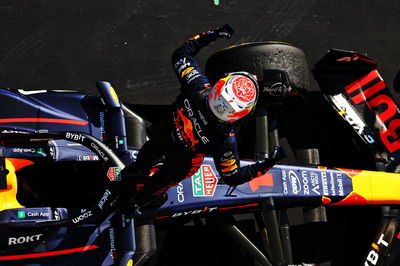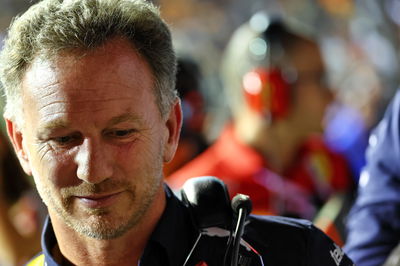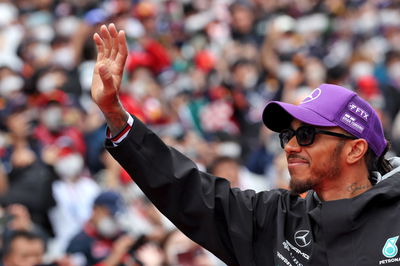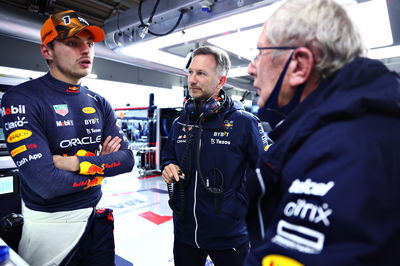F1 cost cap: How Red Bull broke it, their punishment, and the latest news on 2023 budget

But what exactly is the cost cap? How does it work? How did Red Bull break the rules and what was their punishment? And what has happened this season?
What is the F1 cost cap and why was it introduced?
F1 introduced the first-ever set of financial regulations for 2021 in a bid to encourage a more competitive championship.
The hope was that by enforcing a limit on spending, F1 would help level the playing field more by enabling smaller teams with less resources to compete in an even environment against teams boasting huge budgets.
Some teams were previously known to be spending upwards of $400m per season.
The other main goal behind the implementation of the budget cap was to ensure a financially-sustainable sport.
The cap works by limiting the amount of money an F1 team can spend over the course of a calendar year to avoid spiralling costs.
Any team found guilty of overspending will face a penalty.

How much is the cost cap?
Originally, the 2021 budget cap was to be set at $175m, but that was cut down to $145m to help teams struggling as a result of the COVID-19 pandemic, which placed greater emphasis on the need for F1 to slash costs.
The cap was reduced to $140m for 2022, with plans to further cut the limit down to $135m for the F1 2023 season until 2025.
These figures are based on a 21-race season and will be adjusted accordingly, with an extra $1.2m allowance for each race over that threshold.
The FIA agreed to a 3.1 percent raise for the 2022 cost cap due to the impact soaring inflation was having on the teams’ budgets.
What is included under the cost cap?
Expenditure that falls under the cost cap includes:
- All parts on the car (from the steering wheel to the wheel nuts)
- All the elements needed to run the car
- Most of the team personnel
- Garage equipment
- Spares
- Transport costs
- Everything in between
What isn’t included under the cost cap?

Expenditure that does not fall under the cost cap includes:
- F1 driver salaries
- The wages of the three highest-paid staff members
- Travel costs
- Marketing spend
- Property and legal costs
- Entry and licence fees
- Any non-F1 or road car activities
- Parental and sick leave payments
- Employee bonuses and staff medical benefits
How did Red Bull break the rules? How were they punished?
The FIA found Red Bull guilty of a "minor" overspend of the 2021 $145m budget, while Verstappen was wrapping up the 2022 title, in a huge end-of-season scandal. Team principal Christian Horner claimed the overspend did not affect their performance.
Red Bull were hit with a $7m fine and a 10 percent reduction in aero testing for 2023 as punishment.
Thirteen areas were "incorrectly interpretated" by Red Bull, including staff catering.
Red Bull are dominating in 2023 despite their punishment, leading Lewis Hamilton to criticise: “I mean, there wasn't really a big punishment last time, so there's no real [deterrent].
"There will be people that will probably go for it again and know they're just going to get a slap on the wrist."
How can the teams save money?
Teams have already been forced to cut back on staffing levels in order to make savings.
Christian Horner revealed Red Bull have had to make over 90 people redundant, while Mercedes have laid off 40 members of staff.
Teams also have to factor in potential accident damage.
One of the most effective cost-saving measures is to cut back on development and reduce manufacturing time, something that will hit the big teams the hardest.
Lewis Hamilton claimed that he would have won the 2021 world title if Mercedes had spent an extra $300,000 on upgrades such as “a new floor or an adapted wing”.
What has happened in 2023?
Reports emerged prior to the F1 Hungarian Grand Prix that up to three F1 teams were in breach of the 2022 budget, which the FIA are investigating.
The FIA were cold-calling into factories, interviewing staff and reading WhatsApp chats as part of their investigation, the reports claimed.
But the FIA issued a statement: “In light of recent reporting, we’d like to reiterate the ongoing process preceding financial regulation certification for the teams – none of which have been informed of their certification status.
“The auditing fieldwork is still ongoing and is scheduled to conclude in the upcoming weeks, after which there will be a period required for the finalisation of the review.
“There is not, and has never been, a specific deadline for certification, and any suggestions of delays to this process or potential breaches are completely unfounded – the Cost Cap Administration will formally communicate its findings according to the procedure set out in the Financial Regulations.
“The timeframe is intentionally not fixed in order not to prejudice the robustness and the effectiveness of the review.”











